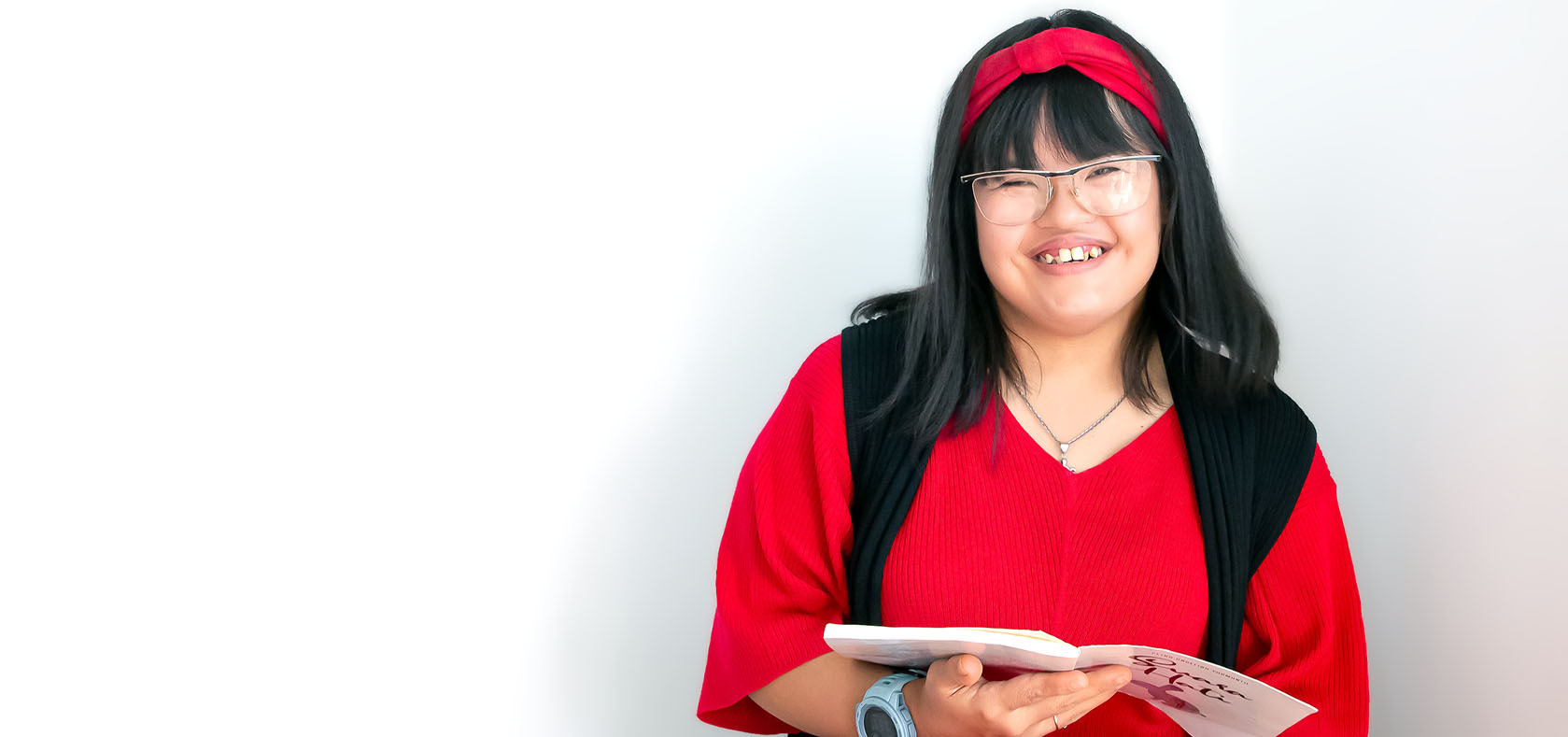In the words of a justice champion, Petra Angelina: “The justice system needs to change, it needs to work for everyone”
Date:
Author: Lauren Rooney

Petra Angelina, 37, is a passionate justice champion and self-advocate for the rights of persons with disabilities. She is using her own journey to empower other women and persons with intellectual and psychosocial disabilities to exercise their rights and to realize their full potential.
Women with intellectual and psychosocial disabilities are among the most marginalized of the estimated 690 million persons with disabilities living in Asia and the Pacific. In recognition of this, UN Women, in partnership with the University of Galway and in collaboration with organizations for persons with disabilities, is conducting a legal needs survey for women with intellectual and psychosocial disabilities in the Asia-Pacific region – to work towards closing the justice gap for this group of women. Petra is one of more than 100 women who participated in the legal needs survey.

Many women like me don’t know how to exercise their rights, and when we do, we are often treated poorly in the process. How can we be expected to reach our full potential if we continue to be denied our rights?
Like everyone else, we have the right to be treated fairly when it comes to accessing justice. But this is often not the case:
Have you ever wondered what it would be like to go to a police station to report a crime and be unable to get justice because you are not considered credible?
Can you imagine living in a society without a bank account because you don’t have legal capacity to open one?
How would you feel knowing you are an easy target for violence because perpetrators are hardly ever punished for crimes committed against persons with disabilities?
For women with intellectual disabilities, some of our biggest challenges to accessing justice include:
- People not respecting our decisions;
- People questioning our credibility and not taking us seriously;
- Not being taught how to keep ourselves safe or how to take action if we are ever in danger;
- Not having the proper support so we can make our own decisions; and
- Being told we have no legal capacity.
The justice system needs to change; it needs to work for everyone, and I know that my voice and experience can help to do this. Yet we are often excluded from participating because resources are not designed to be accessible for people like me – for example using long and complicated texts which makes it hard for us to understand.
I was happy to participate in the [UN Women] legal needs survey, because it was made available and accessible in Easy Read* format. For the first time I felt that I could participate and that my voice would be heard in such an important area for us.
I feel lucky because I have been educated, I know how to read and write, and I have a supportive network, including my family and friends and organizations, such as YAPESDI, who have continued to empower and support me to participate in activities like this.
However, from what I hear there are still a lot of other women with intellectual disabilities, not only in Asia and the Pacific but around the world, who live in miserable conditions. Some have never been to school, they cannot read, write, nor talk and some even live in institutions where their family never visits them.
By working together, we can put an end to all discrimination against women and persons with disabilities. It is time to start treating us equally, respecting our rights, and including and listening to us – in all areas of our lives.
My biggest achievement in my life is being a self-advocate for the rights of persons with disabilities. I want all women and persons with intellectual and psychosocial disabilities to know that we too deserve and can have a meaningful life.
* Easy Read refers to the presentation of text in an accessible, easy to understand format. It is often useful for people with learning disabilities and may also be beneficial for people with other conditions affecting how they process information.
This article was prepared under the regional programme, entitled Enhancing Access to Justice for Women in Asia and the Pacific: Bridging the gap between formal and community-based justice through women’s empowerment and reduction of gender biases, led jointly by UN Women, the International Commission of Jurists (ICJ) and the Office of the United Nations High Commissioner for Human Rights (OHCHR), and generously supported by the Swedish International Development Cooperation Agency (Sida).
Under the same regional programme, the legal needs survey for women with intellectual and psychosocial disabilities is being conducted in Fiji, Indonesia, Nepal and the Philippines. The results will be made available in 2023.